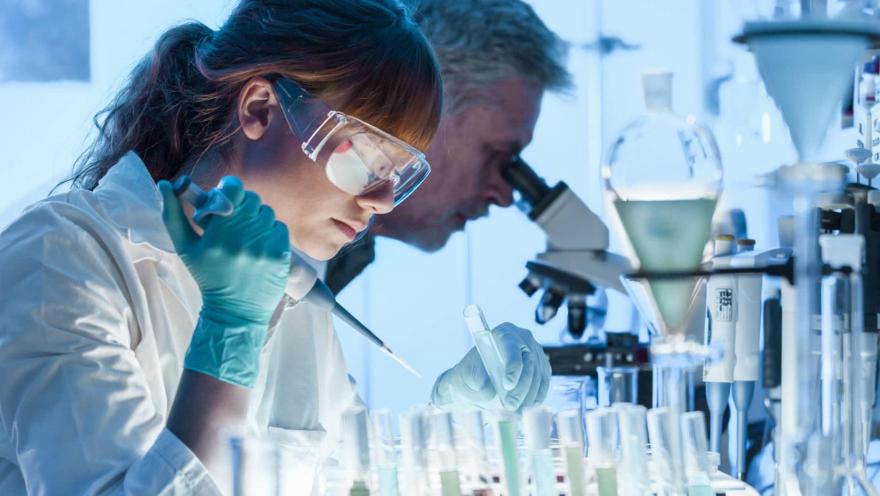The tallies are in for The ALS Association’s research program for the 2020 fiscal year, showing a total commitment of $21.5 million dollars in 70 promising research initiatives around the world.
“We hope that these strategic commitments in funding for research projects and infrastructure development will speed breakthroughs and accelerate drug development for ALS,” said Dr. Kuldip Dave, vice president of research at The ALS Association.
One such commitment expected to expedite breakthroughs is the first ever ALS platform study. The ALS Association has committed $3 million – $1 million each year for the next three years – to this important study taking place at the Sean M.Healey & AMG Center for ALS at Massachusetts General Hospital in collaboration with the Barrow Neurological Institute and the Northeast ALS Consortium (NEALS).
A platform trial is a clinical trial in which multiple treatments are tested and evaluated simultaneously, speeding up the process of testing therapeutic treatments and increasing patient access to these studies. Platform trials also allow new therapies to be added to the trial as they become available, providing greater opportunities in the search for effective treatments and ultimately a cure.
Another exciting addition to the Association’s research portfolio is a $3.3 million commitment to fund a centralized, cloud-based genome-sequence database that will allow all researchers to share genomic data and conduct standardized analyses genomes of 3,000 people living with ALS. Conceived by Dr. John Landers at the University of Massachusetts Medical School, Dr. Jonathan Glass at Emory University, and Dr. Bryan Traynor at the National Institutes of Health, this promising work and ease of data sharing will help to propel ALS research in the area of genetics.
Collaborations are key to the way the Association pursues research. That’s why we were excited to launch a collaboration with ALS Finding a Cure and the MDA to co-fund Houston Methodist Neurological Institute and Massachusetts General Hospital for a first-of-its-kind clinical trial of in-human T-regulatory cells, or Treg. The total commitment to that project is $2.5 million. The trial will test whether a patient’s own immune Treg cells can be leveraged to treat ALS.
The principal investigator is Stanley Appel, MD, co-director of Houston Methodist Neurological Institute, chair of the Stanley H. Appel Department of Neurology and the Peggy and Gary Edwards Distinguished Chair in ALS at Houston Methodist Hospital, and professor of Neurology at Weill Cornell Medical College.
“Our funding strategy focuses on high impact projects around the world with a goal to attract additional funding for these projects from our external partners, including the federal government,” said Dr. Neil Thakur, executive vice president of mission strategy for The ALS Association. “Collaboration worldwide will ultimately be the key to unlocking the mysteries of ALS.”
Today, The ALS Association has a total of 169 active research projects in fifteen countries including 141 projects in the United States. FY 2020 spending brings the Association’s total research commitments since the ALS Ice Bucket Challenge to $107 million.


Join the conversation. Please comment below.